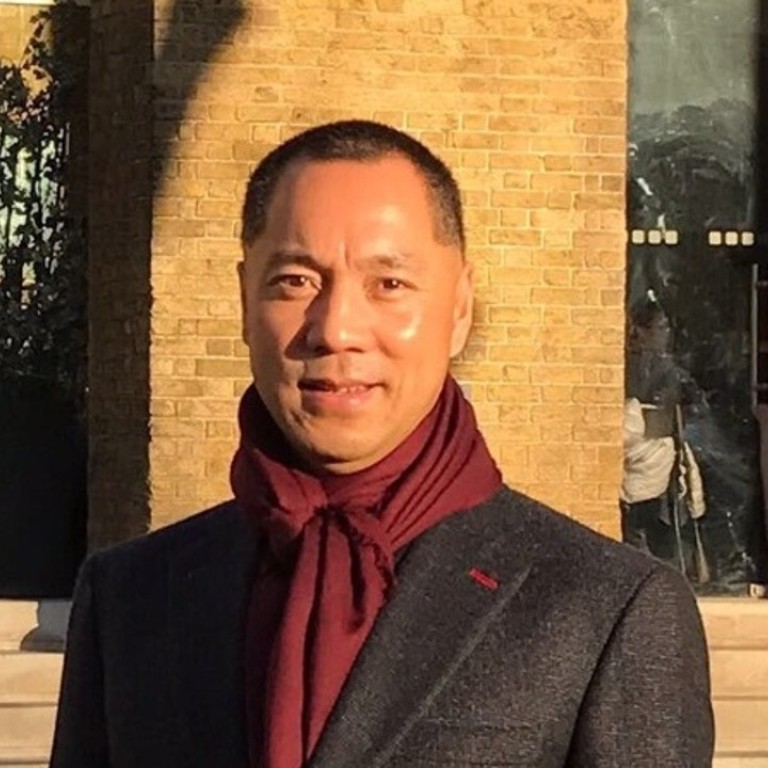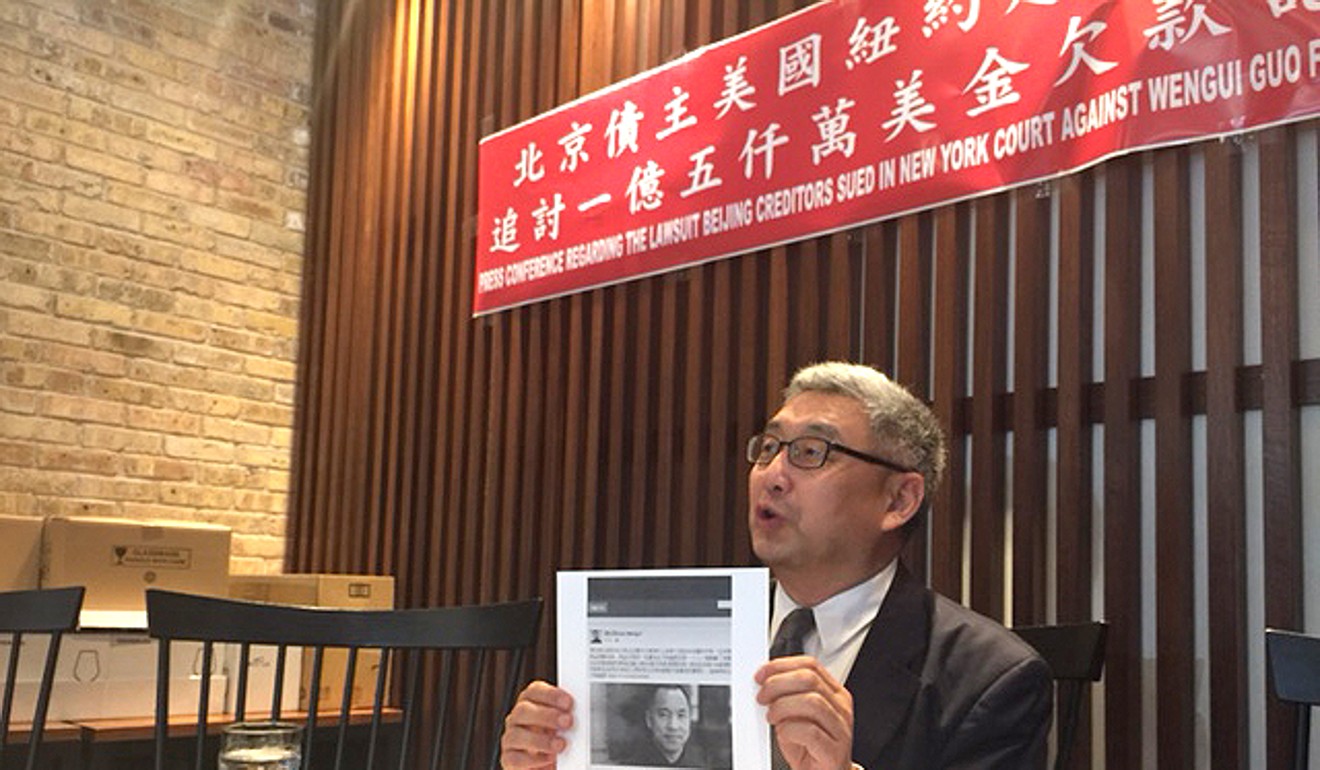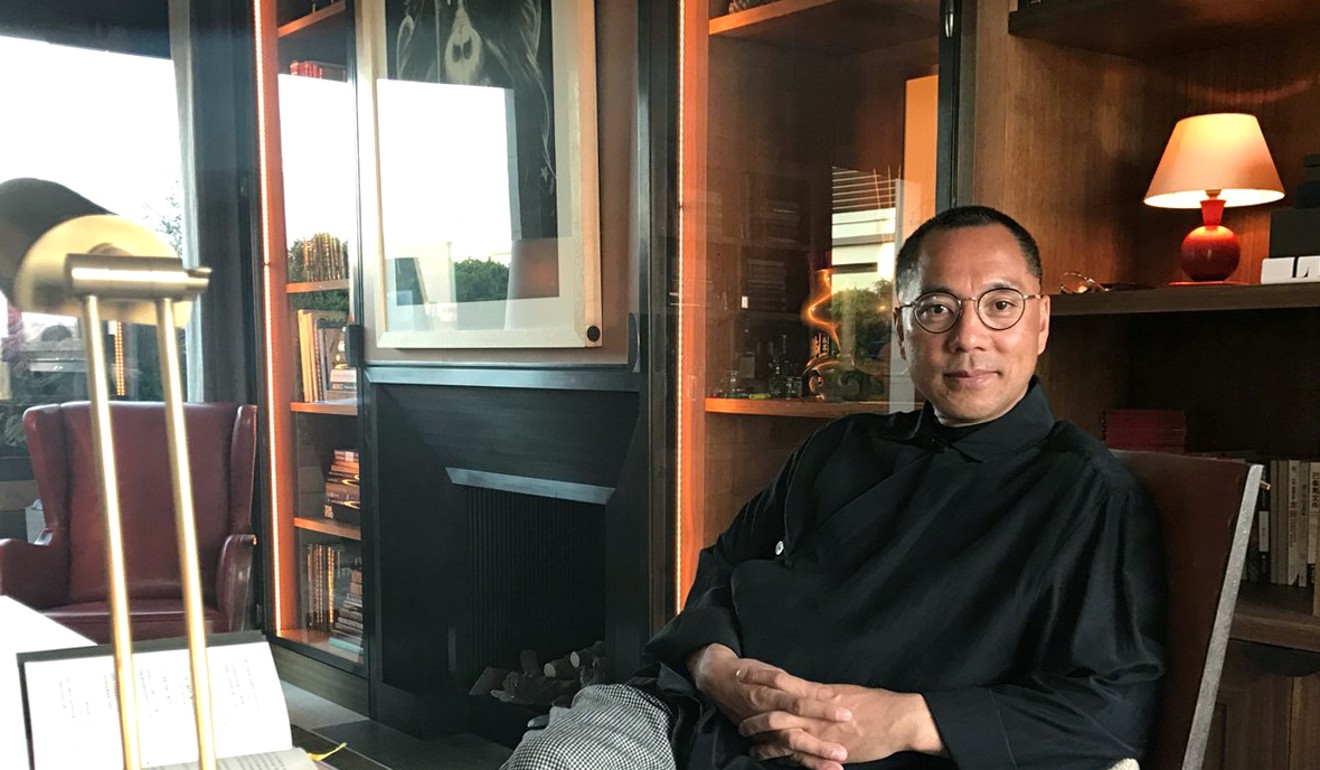
Fugitive tycoon Guo Wengui facing US$1.5 billion in new claims from Chinese firms
Guo’s US assets, including a Manhattan luxury apartment, are targeted in a complaint that will be filed in New York on behalf of 10 Chinese companies
Guo Wengui, the billionaire fugitive from China, is facing new claims worth US$1.5 billion against him in the US as more mainland Chinese companies try to recover assets awarded to them in Beijing.
Escalating a war of words with Guo’s attorney David Boies, New York-based attorney Kevin Tung said he will file a complaint in the local court system next week on behalf of 10 Chinese companies. As with a lawsuit filed last month, the companies alleged that assets Guo owns in the US – including a luxury apartment near Central Park in Manhattan – were acquired with assets illegally transferred out of China.

Those assets had previously belonged to entities under Guo’s direct control, including Beijing Pangu Investment Co Limited, and were subject to distribution to Guo’s creditors, according to the complaint prepared by Tung’s firm, Kevin Kerveng Tung PC.
The lawsuit in New York is the latest escalation of legal action against Guo, who is wanted on corruption charges in China and has made a series of graft allegations against the Chinese government and company officials on the mainland.
Last month, Tung announced details of a lawsuit he filed against Guo and entities he controls on behalf of nine mainland Chinese plaintiffs, mostly construction firms, seeking $50 million worth of direct and punitive damages sustained because of their inability to recover assets awarded by Beijing courts.
Guo, a property developer with close ties to former deputy state security minister Ma Jian, is wanted by Beijing over allegations of corruption. He has been living in self-imposed exile in his New York penthouse for more than two years and has made regular video appearances on social media.
The Chinese government has launched a sustained effort through state media to discredit Guo, making a request to Interpol in April for the issue of a global “red notice” for his arrest.
Boies warned Tung in a letter dated June 14 that allegations that Guo illegally transferred assets from China constituted defamation.
Allegations made in formal complaints registered with the courts can’t be considered defamation “and that’s why I was wondering why a self-proclaimed super lawyer doesn’t know this”, Tung said. “Or maybe he just ignored this and is just trying to bully me.”

Boies Schiller responded to Tung’s comment. “We are not alleging what is said in the complaint is defamation, but we are alleging that what Kevin Tung said at his press conference was defamation,” David Boies said in an email to the Post.
Boies was referring to a June 13 press conference in New York, where Tung made numerous comments about why a US court might rule in his clients’ favour.
“I believe that a US tribunal will agree with me,” Tung said at the time. “They will not tolerate this kind of practice whereby someone takes assets out of a country, and comes to the United States to enjoy a luxurious life at the expense of creditors.”
Guo regularly publishes allegations of corruption and collusion against top Chinese government officials, including Politburo members Wang Qishan and Meng Jianzhu on his social media channels. Some of his posts taunt those suing him.
In his remarks in New York, Tung suggested that these public challenges had prompted the latest group of soon-to-be plaintiffs to try their luck in a US court.
“Mr. Guo basically invited these new plaintiffs to get involved by saying on Facebook that there should be more plaintiffs and that he’s up for a fight,” Tung said.
His posts on Twitter and Facebook alone can number 50 or more a day, sometimes featuring lengthy videos posted to his YouTube account, alleging that high-ranking officials and their families have violated Chinese Communist Party rules by stashing assets overseas.
Guo has also accused Chinese government censors of deleting comments and accounts that mention these allegations on domestic social media platforms WeChat and Sina Weibo.

